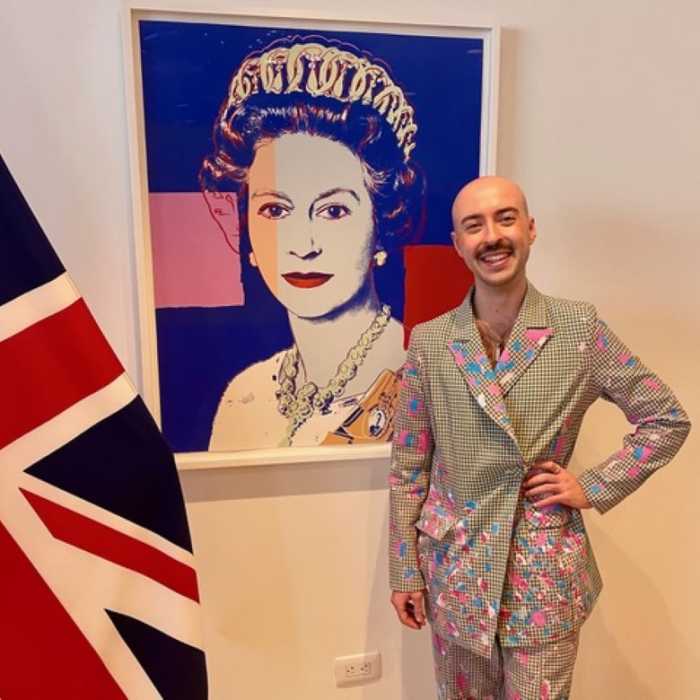Rob McClure in the title role of Christopher Curtis and Thomas Meehan’s “Chaplin,” directed by Warren Carlyle. | JOAN MARCUS
In bringing silent film legend Charlie Chaplin’s rags-to-riches-to-exile-to-redemption story to the stage, the creators of “Chaplin” faced some serious hurdles.
Among them: condensing a sprawling narrative, making a century-old star feel relevant for today’s discerning audiences, striking the right balance of pathos and comedy, and translating the spirit of black-and-white silent films onto a three-dimensional stage.
Not to mention finding an ultra-talented actor to fill the little tramp’s oversized shoes.
The result is decidedly a mixed bag. Though the new bio-tuner, directed and choreographed with flair by Warren Carlyle (“Finian’s Rainbow”), falters here and there, “Chaplin” exudes an endearing charm and hits some magical notes.
And by far the brightest note is relative newcomer Rob McClure, who is spot-on as the broad, impish performer with a gift for making people laugh. Not only is his physical comic timing marvelous, but he delicately reveals darker depths below the surface. Even when McClure’s Chaplin is being a brute, it’s hard not to side with him.
Also noteworthy in the 24-person ensemble are Jenn Colella as Hedda Hopper, the villainous gossip maven bent on knocking the cocky performer off his high horse, and Wayne Alan Wilcox, who makes the most of the underwritten role of Sydney, gamely playing second fiddle to his more talented younger brother.
“Chaplin” also boasts some eye-popping flourishes. The versatile movie studio set (designed by Beowulf Boritt) features an enormous brick backdrop that allows for dazzling video projections (by Jon Driscoll) depicting London slums and Hollywood glamour. The choice to limit the color palette to black and white, with an occasional pop of red, is a bold one (the women even wear black lipstick). The costumes, by Amy Clark and Martin Pakledinaz –– especially the glittering deco-period gowns –– are impeccable.
Apparently, some of these innovations were lacking in the original 2010 staging at La Jolla Playhouse in San Diego, then titled “Limelight.”
No doubt Christopher Curtis and Thomas Meehan (“Hairspray”) struggled with the book, trying to distill a vibrant 88-year life into two-and-one-half hours. Unfortunately, at times the plotting feels like a dutiful list of milestones, preventing real dramatic tension from taking hold.
Loving mother teaches young Chaplin to observe quirky human behavior and is soon thereafter committed to a mental asylum? Check. Origin of the trademark tramp character? Check. Career jumps from Mack Sennett’s Keystone Studios to Essanay to Mutual to First National, where he creates his own studio and rockets to global fame? Check. His bumpy relationship with the devoted Sydney? Check. His three failed marriages before getting it right with wife number four? Check. Being exiled for Commie leanings and having a casting couch overflowing with underage girls? Check.
And so on, until his Oscar triumph in 1972.
The score by Christopher Curtis is a pleasant mix of tender, soul-baring ballads and plangent anthems, inflected with riffs of the jazz age. Yet some songs are syrupy rehashes of what we’ve already witnessed onstage. The notions conveyed in the hopelessly buoyant Act One number “Life Can Be Like the Movies” are refuted, predictably so, late in Act Two.
Likely the mawkish passages are meant to mimic the style of his movies. But that doesn’t make them feel any less cloying in this context.
Perhaps the biggest misstep by “Chaplin” is underestimating the intelligence of its audience, pounding certain themes again and again. That his hard-knock childhood is the impetus for his comedy, his need to find a place in the world to call home, his desire to bring joy to millions — all of these points are overstated.
“Once you’ve found the story, you can make it your own,” his mother says. At the height of his fame, Chaplin observes, “Everybody wants to be me. Except me.”
The impending fall from grace — symbolized by the little tramp precariously walking a tightrope high above the crowd — is also referenced repeatedly. There are two songs about it, where Hedda and company ask “What’cha gonna do when it all falls down?” I counted how often that sentiment appears in the script — more than 30 times.
Not since “Sunset Boulevard” has a big Broadway musical dared to revisit the heady days of silent film and its aftermath. If the goal of “Chaplin” was to renew appreciation for this fascinating cinema pioneer, whose work was the first to portray the dreams, fears, and sorrows of Everyman, then this show should be considered a success. Like the man himself, the show is deeply flawed, but the humor and humanity shine through.
CHAPLIN | Barrymore Theatre | 243 W. 47th St. | Tue., Thu. at 7 p.m.; Wed. at 7:30 p.m.; Fri.-Sat. at 8 p.m.; Wed., Sat. at 2 p.m.; Sun. at 3 p.m. | $66.50-$135.50 | telecharge.com or 212-239-6200


































